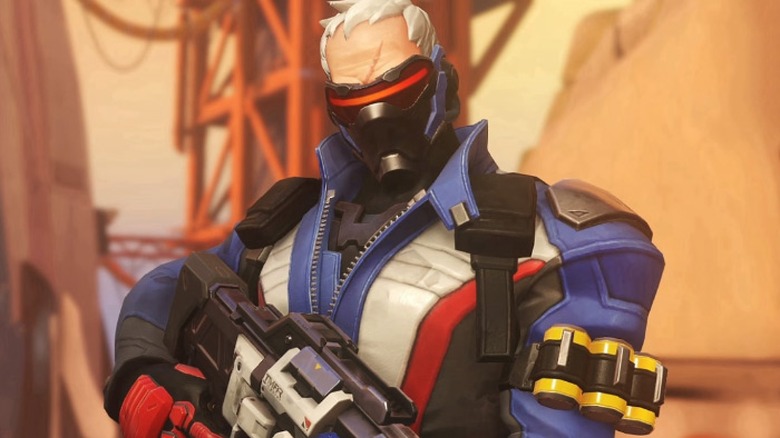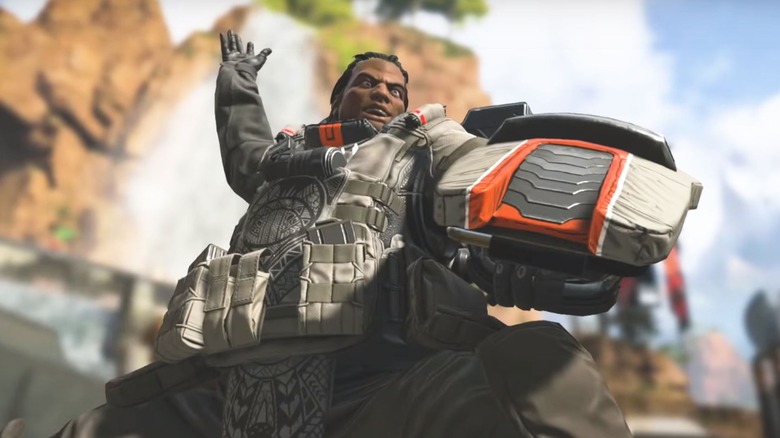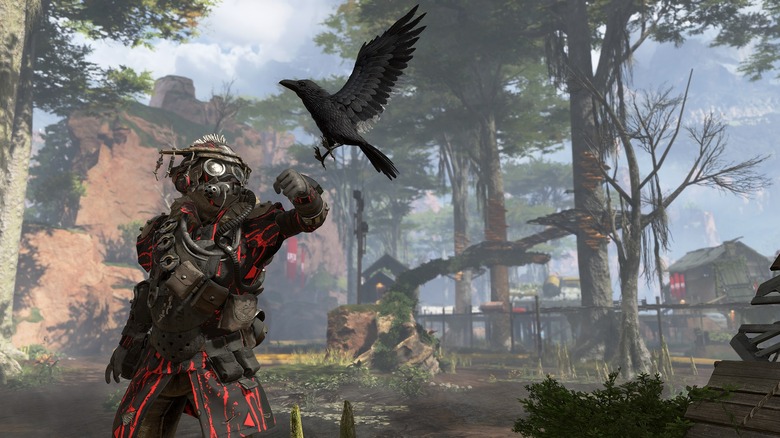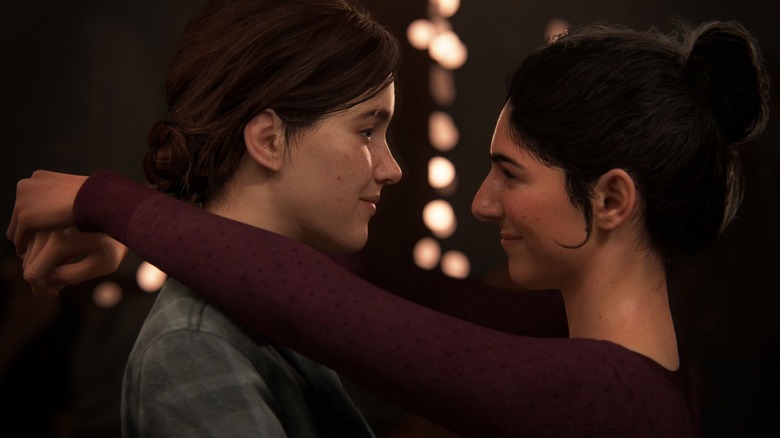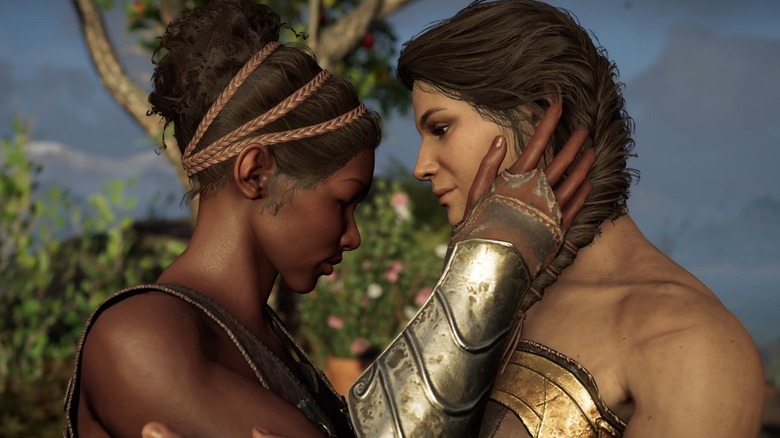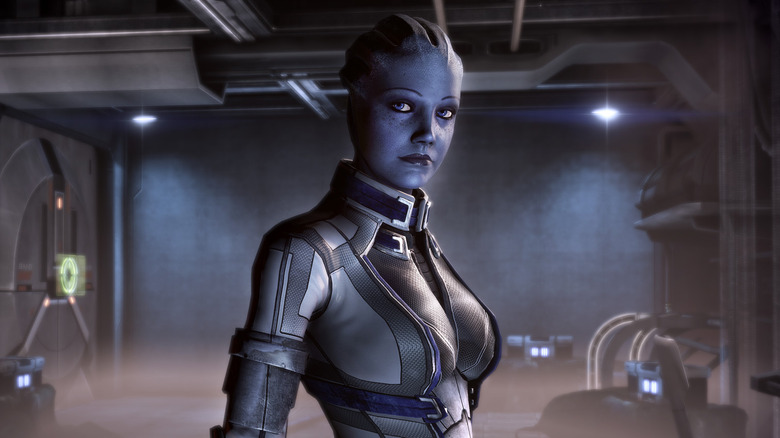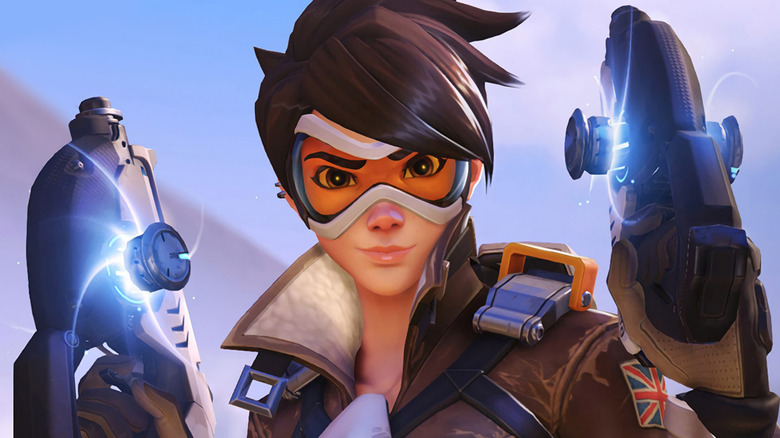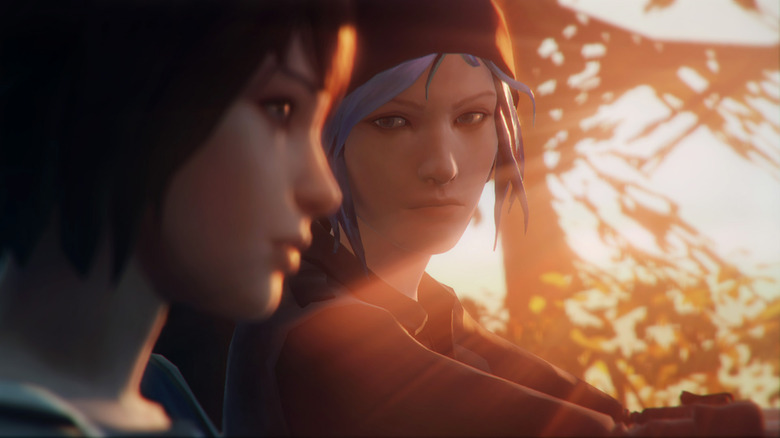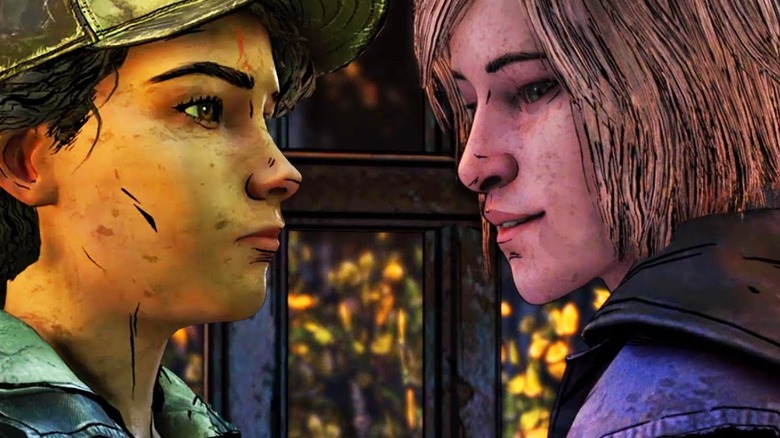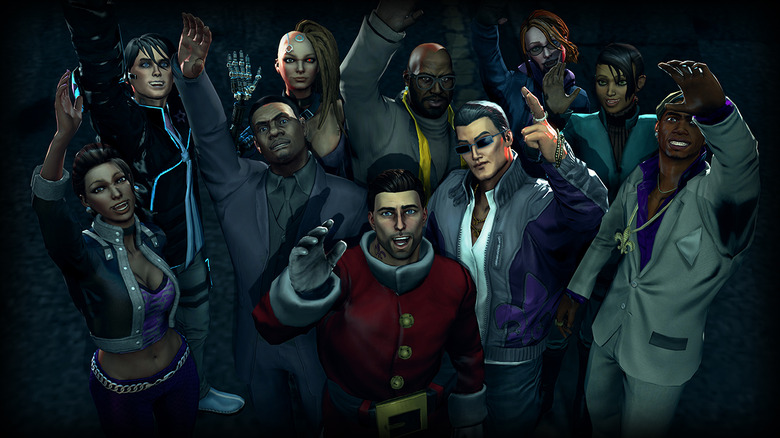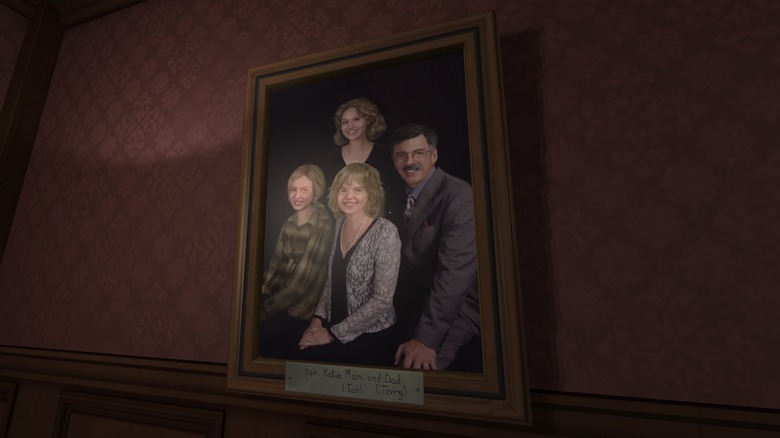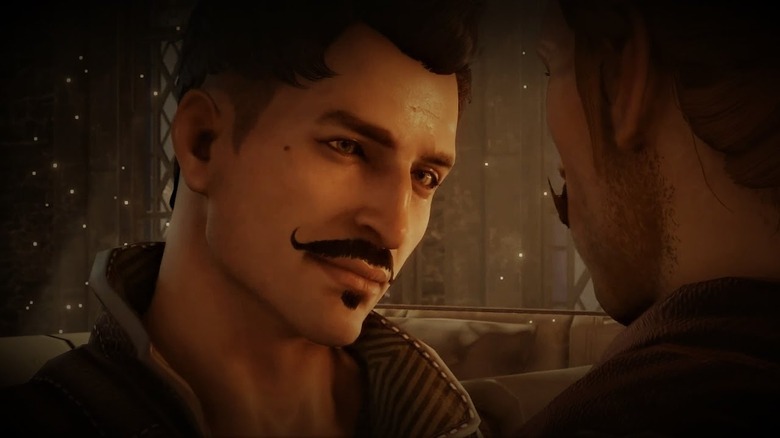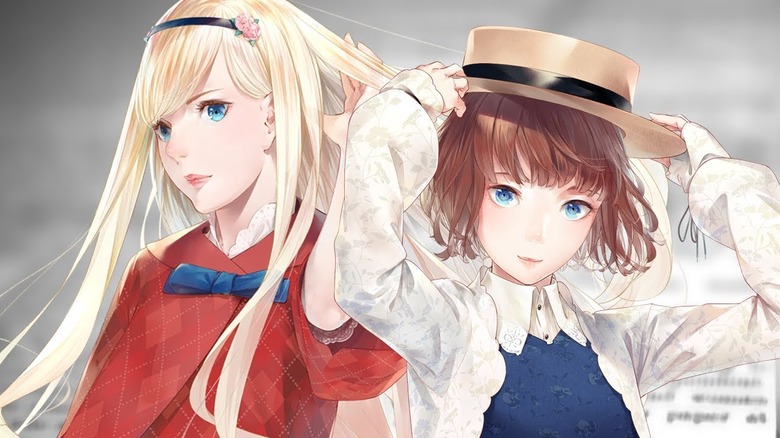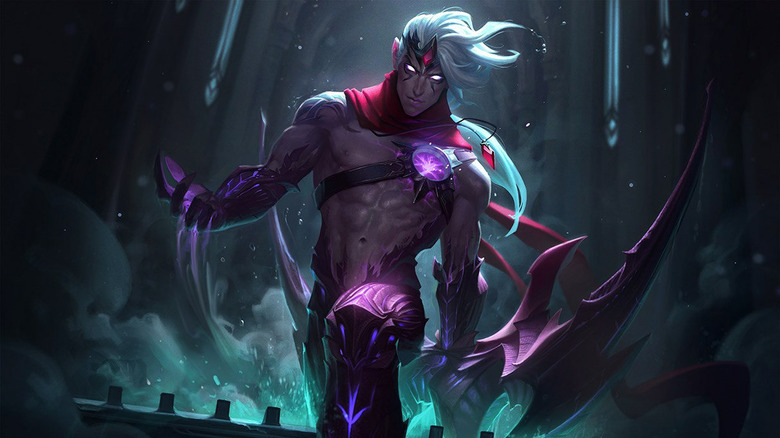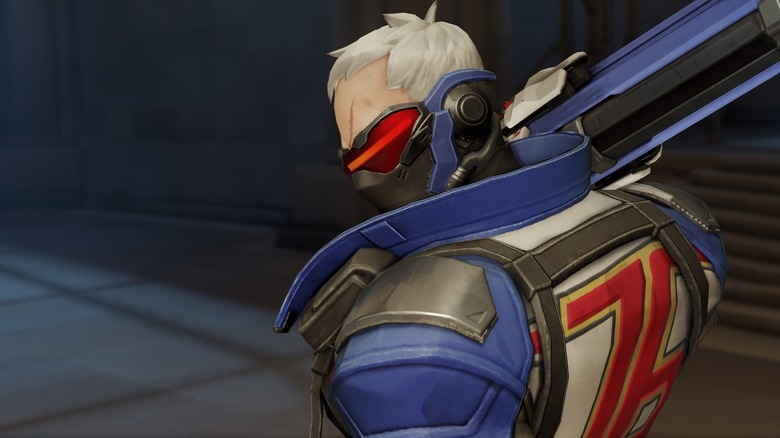Video Game Characters Who Are Openly Gay
It is 2019, so it should come as no surprise to anyone that as every other branch of entertainment gets a lot more brown, a lot more female, and a whole lot gayer, video games have finally begun to follow suit. The days of the ugly exaggerated stereotype are slowly fading into the rearview, in favor of the same deep and diverse storytelling that every other medium gets to enjoy. And also just like every other medium, video games are better for it.
It's been a long, arduous road, though, and we're far from the end of it. As such, it's worth giving praise to the trailblazing characters who let LGBT folks see themselves in a whole new light: as heroes, storytellers, rebels, and sometimes just plain badasses. These are just a few of the best out and proud characters that players have met over the years.
Gibraltar, Apex Legends
Apex Legends is already something special as far as diversity in the realm of multiplayer shooters goes, just by nature of having not one, but two black women in the roster. That's something Blizzard, for all their representation — even on this list — hasn't been able to accomplish in Overwatch, infamously managing to add a hamster before a black woman.
The impressive representation apparently runs a bit deeper than that, however, with Respawn casually throwing up the fact that Gibraltar, a Pacific Island-descended mountain of a man who specializes in shield support, is unabashedly gay.
According to his backstory, Gibraltar got involved with the SARAS search and rescue team thanks to an incident where he and his boyfriend stole a motorcycle and went on a joyride. It'd be romantic if not for the fact that they got caught in a mudslide and had to be rescued by Gibraltar's father, who risked life and limb to get the couple out of danger, ultimately losing said limb as a consequence. His sacrifice led Gibraltar to become the man he is in the Apex Games, which is possibly the best support in the game.
Bloodhound, Apex Legends
On the other end of the spectrum in Apex Legends' roster, we have the mysterious Bloodhound. Billed as a technological tracker, and best known to players as "the one that always shows up at the worst possible moment," Bloodhound's abilities are already fairly unique, highlighting enemy footsteps, revealing enemy traps, and an Ult that basically lets Bloodhound re-enact that bit in Predator where the Predator does a full on quarterback run on Dillon before he can even get the "oh crap, I've lost an arm" look off his face.
EA's character sheet, however, appears to be very deliberate in its pronouns for Bloodhound, however, leaning way into the fact that Bloodhound is a non-binary gender. Granted, everything involving the character is a mystery, from their electronically altered voice to their body-hiding armor. But according to an interview with the game's community manager, Bloodhound's very deliberately being kept non-binary, right down to the intro video being specific about using they/their pronouns.
Ellie, The Last of Us
When The Last of Us first hit, players were too worried about the lengths Ellie's erstwhile protector, Joel, would go to even begin wondering about love; and Ellie never even got to spend enough time with Sam, the only kid around her own age she met, to figure out if it was even an option.
As it turns out, though, Ellie's already lived through love and loss just like everybody else, with a girl named Riley in the standalone Left Behind DLC, where the two escape from their compound and spend a magical day at an abandoned mall, leading into Ellie's first kiss.
The Last of Us Part 2, however, will be playing things a lot less coy, as grown-up Ellie is shown in the first gameplay trailer with a new girl right in the middle of a dance floor. Considering the other stuff in that trailer, nobody can say she hasn't earned it.
Alexios/Kassandra, Assassin's Creed: Odyssey
The Assassin's Creed games have never been strangers to inclusivity. Even though that famous "This game was made by a multicultural team" disclaimer was there as a CYA against anybody complaining they made a game about Muslims post-9/11, Ubisoft consistently put their money where their mouth was, from giving us one of the few black female protagonists, to not even attempting to paper over Leonardo DaVinci's homosexuality, to having a trans character hanging around Victorian London and not even making a huge deal out of it.
So, it should be no surprise that taking this franchise to Ancient Greece meant they weren't going to walk on eggshells about Greek sexuality, letting both Alexios and Kassandra partake in love, sex, and romance of all different sorts with all different genders whenever they wanted, no questions asked.
Well, one question: how the hell do Alexios and Kassandra have this kind of stamina? Good lord.
Liara T'Soni, Mass Effect Trilogy
Mass Effect carries on the proud Star Trek tradition of seeking out new civilizations, and then the ship's captain having ravenous sex with their peoples. But at the very least, Commander Shepard has to put in some serious legwork establishing a relationship before getting to that point with any of the series' potential love interests, and that particularly applies to what is heavily hinted as the canon relationship of the trilogy: Commander Shepard and Asari scientist Liara T'Soni.
Not only is Liara the one relationship that can carry and stay strong from the first game all the way to the bitter end (long as you bought the fantastic Lair of the Shadow Broker DLC for Mass Effect 2, anyway), she's also the only relationship available to both male and female versions of Commander Shepard from the very beginning, thanks to the lovely biological fact that Asari can mate with every gender. Naturally, however, the relationship takes on a special poignance playing as Femshep (which, really, everyone should be doing to begin with). Despite the wild sci-fi setting, their relationship evolves and grows in all the ways the best Hollywood romances do, with Liara moving past the shy bookworm you meet in the first game into a powerful and confident equal who becomes Shepard's reason to fight on from the strength of Liara's love and faith, not her martyrdom.
Lena "Tracer" Oxton, Overwatch
Multiplayer-only shooters typically stay firmly in the realm of apolitical and asexual when it comes to story, which is why their audience stays within a slim spectrum of players. Overwatch, however, is the rare multiplayer shooter that appealed to everyone by having a story and universe worth hanging around in long after the shooting stops. But while diversity usually means a few more women and brown people than normal, Blizzard went the extra mile with Overwatch, and did it in a way that exemplifies "out and proud."
Tracer is, for all intents, Overwatch's mascot character. She's on the game's cover, she's the silhouette in Overwatch League's logo, she's the first hero who shows up in the game's very first cinematic trailer, she's the character who talks you through the game's tutorial, and on top of that, she's just pure unending sweetness and joy at all times. Though a royal pain to face off against, she's the character everyone loves at first sight.
And then about six months after the game had been out, Blizzard casually dropped the atom bomb on the entire fanbase via a Christmas-themed comic, in which we discover that dear Tracer is a lesbian. And thus, whether homophobes like it or not, the lone, glorified cover star of one of gaming's greatest success stories was a gay woman.
Chloe Price, Life Is Strange
The massive tornado that threatens Arcadia Bay is the perfect, blatant analogy for Chloe Price returning to Max Caulfield's life in the first Life Is Strange. Chloe upends virtually everything in Max's life to the point that the last decision you may is to let the entire town get devastated for the sake of keeping her in Max's life.
It's not 'til Before The Storm that we get a full picture of what Chloe's love looks like for the few people that can get past the hard-ass armor. Chloe is — or at least, feels — invincible with the love of the right person in her life. It's love she haphazardly tries to bring out of Max, but finds ready, waiting, and beautiful in Rachel Amber. It's love that drives her to improve and try awkwardly to improve on The Bard just to express it in full. And it's the love she gives to Max, knowing she would never be whole without her hometown.
Clementine, Telltale's The Walking Dead
Since 2012, we've had to watch Clementine learn, love, and lose more than any human being can possibly fathom without going insane. Clem nearly does, in fact, by the time New Frontier rolls around, and we find her a cold-hearted loner who's long since figured out it's easier to shoot someone than trust them.
The Final Season, however, is the first time Clem has found herself with a group of people her own age, meaning for the first time in seemingly ages, we get a glimpse of who she might be when the day comes that there are no Walkers. And yes, that includes falling in love and, if you play your cards right, having her first kiss with a girl named Violet whose experience seems to match Clementine's on several levels. Love, in Walking Dead's universe, is dependent on finding at least one person who knows the pain of living here, and is willing to take the risk of hoping with them anyway.
The Boss, Saints Row 4
Saints Row's never been known for its subtle take on ... well, anything, really, but that hadn't really related to love and sex until Saints Row 4, where Volition wasn't about to pull off a giant winking Mass Effect parody without engaging in some good old-fashioned Mass Effect-style romance. Unlike BioWare, however, Volition didn't impose a single limit on who The Boss can sleep with, when, or where. Because the entire Saints gang is The Boss' personal, pansexual Tinder in Saints Row 4, regardless of gender, and no strings attached.
The twist, though, is that this could've been a gross, exploitative "let's see the entire cast naked" sort of deal, but just like the rest of Saints Row 4, the game is surprisingly thoughtful with every encounter. Each scene is bringing all four games' worth of history into many of The Boss' propositions, but not forgetting who each of these characters fundamentally are. Sleeping with Johnny Gat involves a long bit of dialogue. Kinzie Kensington, on the other hand, only needs to be asked "wanna f***?" Matt Miller needs a bit of roleplay, because of course he does. The only drawback is that sex with Keith David is off-limits. It's for the best, really, we've all seen Requiem for a Dream, we know what that turns into.
Sam Greenbriar, Gone Home
Possibly the great coming out story of video games, Katie Greenbriar's journey in Gone Home contains multitudes about discovering just who her entire family truly is. But no LGBT person ever comes pre-made and confident out of the gate, and the real power of Gone Home isn't just in having gay characters and narrative, but in exploring the actual thought process of a girl discovering she's into other girls.
What's more, Gone Home doesn't flinch, with Sam's narration underlining everything messy and frustrating about the entire process of falling in love with Lonnie, along with everything warm and joyous and affirming about finding her. We see two girls' lives merge and diverge, their arguments about the future, and what they mean to each other, and the abject, soul-shattering fear that comes with not knowing if the world at large is ready to accept their conclusions.
Dorian Pavus, Dragon Age: Inquisition
While, as mentioned, BioWare has never strayed from homosexual relationships in their games, it wasn't until Dorian Pavus that BioWare made a party character where there was absolutely no other romantic option for them other than gay. Furthermore, Dorian represented the first time a character had to directly confront the consequences of being queer in staunchly conservative spaces. In him, BioWare made a narrative that was specifically about the character being gay.
Dorian's companion quest involves the Inquisitor receiving a letter for Dorian from his father, Magister Halward, which leads to the normally ascerbic Dorian opening up to the player about his youth, being sent away from home for "preferring the company of men," and leading into a fateful meeting where Dorian can choose to forgive his father or remain estranged. Afterward, as Dorian speaks with the Inquisitor about all that's happened, a male player can choose to start a romance with him, and a female who may have flirted with Dorian in the past can directly confront feeling led on.
J.J. Macfield, The Missing: J.J. Macfield and the Island of Lost Memories
WARNING: This entry contains MASSIVE spoilers.
Swery65 making a run at the tired indie platformer-puzzler genre was always going to be a very different experience, and that's even in comparison to the previous WTF champion in the genre, the last 30 minutes of Inside. What no one expected was that not only would Swery craft the best game he's ever made, but also one of the most harrowing tales of gender dysphoria ever crafted.
On its face, The Missing: J.J. Macfield and the Island of Lost Memories is just a story of a girl named Emily gone missing during a camping trip on a mysterious island where its inhabitants can't die, and Emily's girlfriend, J.J., running after her through a horrifying wringer of surreal puzzles that all involve gruesome self-mutilation. It's not until the end that the full breadth of The Missing's narrative takes shape: one, that the whole experience was a near-death dream brought on by J.J. slitting her wrists, and two, J.J. presents as male in the real world, positing the whole dream as a disturbing allegory for grappling with being transgender. The last-minute context demands second playthroughs to truly grasp and appreciate, but the touchstones of J.J.'s experience throughout are terrifying in their familiarity to trans folk, and the game pulls no punches.
Varus, League of Legends
Like most MOBA titles, there's a story to League of Legends, but that story often falls by the wayside in the face of esports coverage, microtransactions, and the occasional ridiculously catchy K-pop video. Still the story is there, and for many of the champions, there's plenty of surprises to be found therein.
One of those surprises is the revelation that coldblooded, silver-haired killer Varus is not one person, but three, all contained within a single body. See, Varus himself is an ancient stone-cold darkin killer who is eventually defeated by mages and cast kicking and screaming into his own bow and trapped inside a temple. Fast forward a few centuries, and during a battle against foreign invaders, Varus is stumbled upon by Valmar and Kai, lovers and beast hunters who found themselves cornered in the temple by foreign invaders, with Kai mortally wounded. Once Varus gets hold of the couple, however, he merges the two into a single entity and then infuses them with his own spirit, creating the unholy abomination League players are familiar with, with Kai and Valmar's love for each other constantly fighting for dominance over Varus' hateful spirit.
Jack "Soldier: 76" Morrison, Overwatch
Nothing about Soldier: 76's appearance, demeanor, or history really offered any indication about his orientation. Mechanically and narratively, he is the very archetype of a gruff, bottled-up-emotions soldier, albeit one with zero fashion sense whatsoever. And really, that's the best part. Being a stereotypical hardass has absolutely nothing to do with who he chooses to love.
And the man who was Jack Morrison chose to love a man named Vincent, who, in a conversation with Ana during one of the Overwatch short stories, he laments leaving behind. Vincent's long since moved on, but Jack most definitely has some measure of regret about that. Granted, we'd be doing even better if more of this stuff was actually in the game itself, but that doesn't change the fact that anyone who plays Overwatch for the first time is welcomed into this wild and weird world of heroes by a gay man and a lesbian. That's a claim no other shooter can make, and may it be the first of many.

